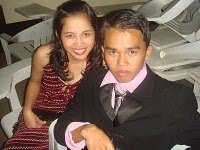Employers often receive hundreds of applications for every job, so it's vital to make sure that your CV/résumé and job application letter create the right impression and present your personal information in the most effective way.
Click here for more on job application letters and emails.
You'll also find extra information on writing CVs/résumé and job applications in the dictionary centre section.
Firstly, here are some general CV do's and don'ts:
DO
* read the advert carefully and tailor your CV/résumé to match the job you're applying for
* be concise when outlining your education and employment history
* try to keep your CV/résumé to one or two sides of A4 paper
* use brief, informative sentences, short paragraphs, and standard English
* structure your CV/résumé in a logical way, with a limited number of main sections
* begin with an action verb when describing your duties (see the CVs/résumé below)
* use bold type or bullet points to highlight key points
* proofread your work for spelling, grammar, and punctuation (many employers just discard job applications that contain such errors)
* see your college careers adviser: they'll have a range of sample CVs/résumés and will be able to help you when writing specific applications
* update your CV/résumé regularly, as your situation changes
DON'T
* go into too much detail: employers are too busy to read rambling and unfocused CVs/résumés
* leave gaps in your employment history: it's better to add a sentence explaining any periods that are unaccounted for (such as a gap year)
* forget to read your CV/résumé for both content and mistakes (you could also ask someone to read it for you)
* use many different typefaces: keep to one or two that are clear and easy to read
* brighten up your CV/résumé with inappropriate colour, photos, or graphics
* name people as referees unless you've already confirmed that they're happy to provide a reference for you
Here are some guidelines on two broad approaches to writing CVs/résumés, one suitable for students embarking on their careers who haven't had a full-time permanent job, and one for students who've worked for several years and who'll be returning to full-time work after their studies.
Starting out on a career
If you come to university or college directly from school, sixth-form college, or after a gap year, you're likely to be applying for your first full-time permanent job when your course ends. This means that, after giving your personal details, you should structure your CV/résumé in the way shown below, first outlining your education and qualifications and then any work experience, part-time or temporary jobs, and other skills.
Structure of CV/résumé
1. Personal details:
* name
* address (home and college address if different)
* telephone number (home/mobile/college if applicable)
* email address
* personal profile (a summary outlining who you are and why you're a worthwhile employment prospect for this particular job)
2. Education and qualifications:
* if you're studying for a qualification in higher education, start with this, making it clear that your studies are ongoing and when the course is due to end
* if you've completed any other further or higher education, state this next
* give your school or schools and the dates you attended them, together with:
o a list of all your A-level (or Scottish Higher) subjects and grades
o brief details of GCSEs, Scottish Standard Grades, or equivalent qualifications (only give full details of these if the employer has specifically asked for them or the subjects are relevant to the job in question)
3. Employment history:
* if you've had several temporary or part-time jobs, list the most important in chronological order, starting with the most recent
* give a brief summary of your roles and responsibilities, focusing on those most relevant to the post you're applying for
* if you've worked in a variety of short-term jobs that aren't relevant to your current application, you can summarize these as, for example, 'various temporary retail posts'
4. Any other skills, achievements, or training:
* list any relevant courses or training (e.g. IT qualifications, knowledge of a foreign language)
* mention significant awards and other achievements, or positions of responsibility at college
5. Interests or pastimes:
* a brief overview of your interests or hobbies will help your potential employer to gain an insight into the type of person you are
6. Referees:
* you can either give contact details of two people who'd be willing to give you a reference or say that references are available on request
* if you're providing specific names and this is your first job, you could use a tutor, teacher, or anyone (apart from your family) who knows you well enough to vouch for you
Subscribe to:
Post Comments (Atom)

No comments:
Post a Comment